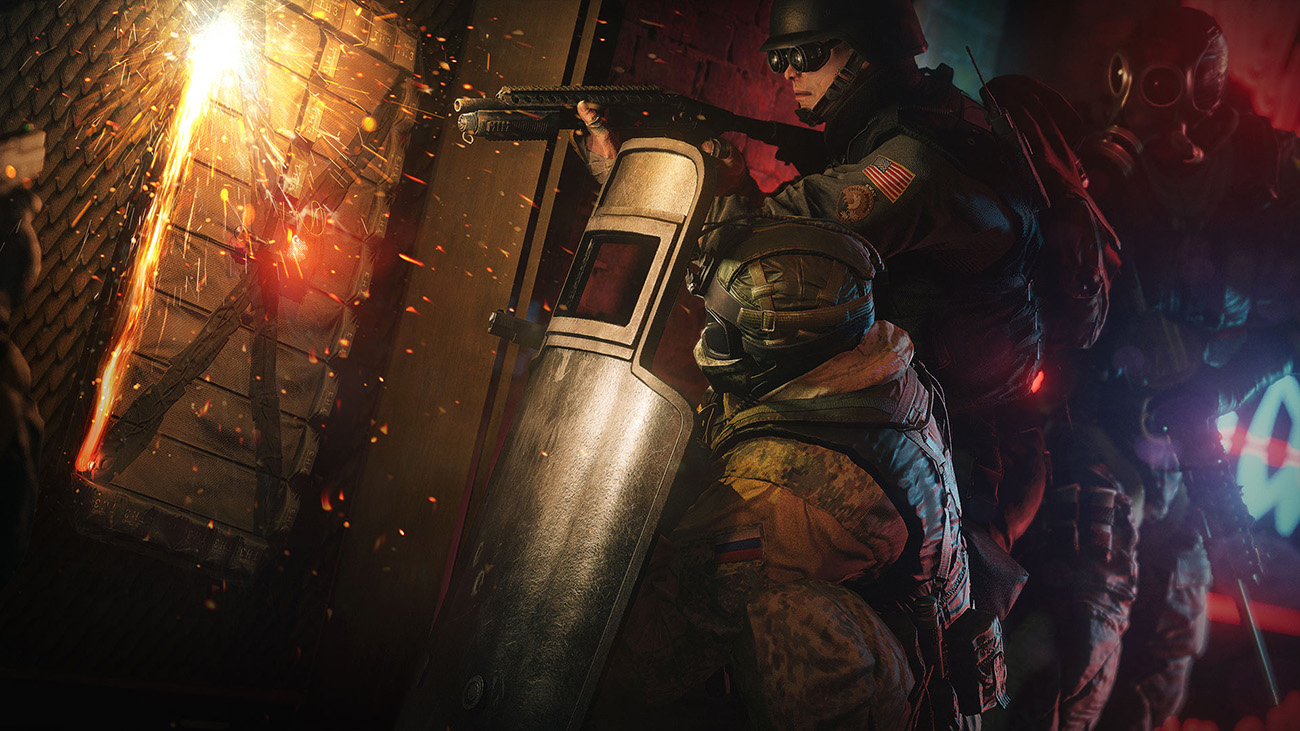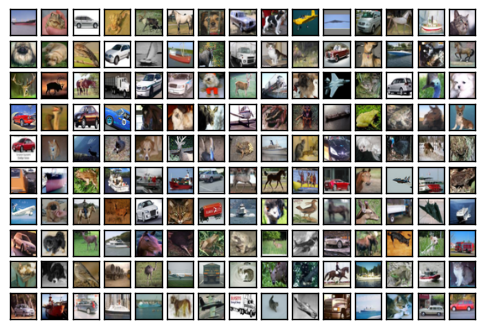Convolutional Neural Networks Part 2
- Useful Tips - {:.} Array to Image in Ipython
- Convolutional Neural Network with TFLearn - {:.} 메모리 제한 - {:.} Retrieve CIFAR-10 - {:.} Data Visualization - {:.} Data PreProcessing and Augmentation - {:.} Building Convolutional Network - {:.} Create a Model - {:.} Training - {:.} Save

Useful Tips
Array to Image in Ipython
Numpy Array를 이미지로 출력시킵니다.
from IPython.display import display
from scipy.misc import toimage
display(toimage(image_array))Convolutional Neural Network with TFLearn
메모리 제한
TensorFlow의 Session은 기본적으로 GPU의 모든 자원을 다 할당을 받습니다.
특정 메모리를 할당받기 위해서는 다음과 같이 합니다.
tflearn.config.init_graph(gpu_memory_fraction=0.4)Retrieve CIFAR-10
# Data loading and preprocessing
from tflearn.datasets import cifar10
(X, Y), (X_test, Y_test) = cifar10.load_data()
X, Y = shuffle(X, Y)
Y = to_categorical(Y, 10)
Y_test = to_categorical(Y_test, 10)Data Visualization
fig, subplots = pylab.subplots(10, 15) # subplots(y축, x축 갯수)
idx = 10
for _subs in subplots:
for subplot in _subs:
d = X[idx]
subplot.get_xaxis().set_visible(False)
subplot.get_yaxis().set_visible(False)
subplot.imshow(d, cmap=cm.gray_r)
idx += 1
Data PreProcessing and Augmentation
# Real-time data preprocessing
img_prep = ImagePreprocessing()
img_prep.add_featurewise_zero_center()
img_prep.add_featurewise_stdnorm()
# Real-time data augmentation
img_aug = ImageAugmentation()
img_aug.add_random_flip_leftright()
img_aug.add_random_rotation(max_angle=25.)Building Convolutional Network
# Convolutional network building
network = input_data(shape=[None, 32, 32, 3],
data_preprocessing=img_prep,
data_augmentation=img_aug)
network = conv_2d(network, 128, 4, activation='relu')
network = conv_2d(network, 128, 4, activation='relu')
network = max_pool_2d(network, 2)
network = conv_2d(network, 256, 3, activation='relu')
network = conv_2d(network, 256, 3, activation='relu')
network = max_pool_2d(network, 2)
network = conv_2d(network, 256, 3, activation='relu')
network = conv_2d(network, 256, 3, activation='relu')
network = max_pool_2d(network, 2)
network = conv_2d(network, 256, 3, activation='relu')
network = conv_2d(network, 256, 3, activation='relu')
network = fully_connected(network, 512, activation='relu')
network = fully_connected(network, 256, activation='relu')
network = dropout(network, 0.5)
network = fully_connected(network, 10, activation='softmax')
network = regression(network, optimizer='adam',
loss='categorical_crossentropy',
learning_rate=0.001)Create a Model
model = tflearn.DNN(network, tensorboard_verbose=0)Training
# Train using classifier
model.fit(X, Y, n_epoch=80, shuffle=True, validation_set=(X_test, Y_test),
show_metric=True, batch_size=96, run_id='cifar10_cnn')Save
model.save('cifar10.tfmodel')